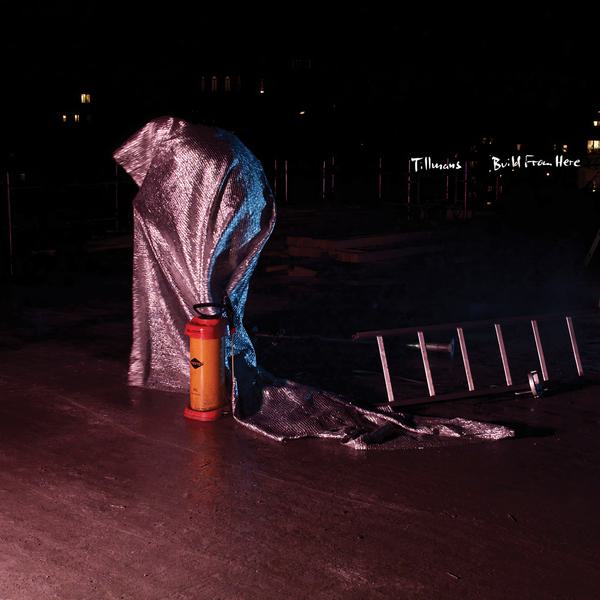
First Listen: Lykke Li – I Never Learn
I can remember listening to Wounded Rhymes, three years ago now, and having my perception of it changed with every spin. At first, I wasn’t quite sure what to make of it. Initially, at least, it seemed like such a contradiction. On the one hand, there was a real uniformity to the record – not just in terms of the way it sounded, but the feel of it, the atmosphere that ran through every track; the whole thing felt so stark, so exposed, so raw. At the same time, there was such variety, in stylistic terms; “Get Some” burned with veritable anger, “I Follow Rivers” was scored through with visceral uncertainty, and “Sadness Is a Blessing”, with repeat listens, made a mockery of its superficially tongue-in-cheek approach to heartbreak – Lykke Li was laying herself bare on that album. She was hurting, and she didn’t seem afraid to show it.
It wasn’t until I saw her live, though, that I felt as if Wounded Rhymes had finally clicked. She played at Manchester’s Academy 2, a thumpingly soulless room that stacked the odds against her from the off; that’s not to mention, either, that the show had already been postponed in farcical circumstances. Not that it mattered, though; any expectations I might have gone in with were confounded in pretty brutal fashion. Li delivered an hour-long set, leaning almost exclusively on Wounded Rhymes, that was searingly dramatic, unerringly theatrical. She lent genuine electricity to everything she did that night; she didn’t play that floor tom on “Get Some”, she beat it to within an inch of its life. She didn’t sing “Youth Knows No Pain”’s sassy chorus; she ripped through it, with real aggression. She brought palpable tension, too, to the stripped-back, six-minute “I Know Places”. It was at that point that I realised what I’d missed. Lykke Li wasn’t just another impressive singer-songwriter, to be fawned over a while and forgotten about until next time. She is, as I suggested on Twitter not too long ago, an honest-to-god alternative pop star.
I can probably leave to your own imaginations, then, how I felt about – firstly – the announcement of I Never Learn, and then the prospect of delivering the first review of it. This is, by Li’s own reckoning, the final instalment in a trilogy linked by the same themes; the couple of new cuts that I saw her preview at last month’s BBC 6 Music Festival certainly sounded as if they were in the same sonic ballpark as Wounded Rhymes. On listening to the record, though, it was the plethora of differences between this album and her last that really struck me. There’s atmosphere in spades, of course, but Li has harnessed it very differently this time around; where Wounded Rhymes was an off-kilter pop album, I Never Learn plays like one, long, slow-burning mood piece, proving that she’s just as adept at pulling off the subtler side of personal drama.
1. I Never Learn
I’d be tempted to describe this as an acoustic opener to the record, but that wouldn’t quite do it justice; unplugged guitar is certainly the early driving force, but it’s washed-out and a little distorted – setting the tone for a record that goes on to trade readily in unease. On paper, “I Never Learn” is gentle; there’s no percussion, with rolling strings and wordless melodies carrying it to the climax, but there’s as much torment in Li’s vocals as you’d expect from a song that so clearly involves self-admonishment.
2. No Rest for the Wicked
Everybody’s heard this one already, as the first single proper from the record, but last week’s emotionally crushing video provided some context (and made a mockery of recent suggestions that that particular medium no longer holds significance). “DON’T LET THEM GET AWAY”, Li urges in the YouTube comment section, and the tale spun by the film, with two lovers torn apart by violence and apparent prejudice, is a neat accompaniment to a track that puts Li’s feelings first and everything else second. The verses are minimal instrumentally, flecks of delicate piano and slow, thumping percussion, but the chorus soars, led by a vocal that sounds less like fresh anguish than weary resignation at the cyclical nature of heartache.
3. Just Like a Dream
We’re staying in pretty similar sonic territory here; the drums are slow and foreboding, and the sound of the piano is warped by layers of reverb. The vocals sit front and centre, and Li’s performance continues to follow the same pattern; it’s not that she’s aiming for restraint, necessarily, but more that painful experience has taught her the necessity of taking a realistic approach to failed relationships. The title says it all; she might want reconciliation, but that doesn’t make it a viable prospect. Of interest, too, are the little instrumental flourishes in the later stages; there’s fluttering synths – indistinct, but they’re there – that are at odds with the song’s otherwise gloomy palette, and perhaps reflect some emotional hesitancy.
4. Silver Line
The primary purpose of this track, it seems, is to serve as the calm before “Gunshot”’s storm; against barely-there backing – a low-key programmed beat, snatches of murky guitar – Li lays claim to the role of guardian angel to her significant other. It works fine, taken at face value, as a straightforward love song – albeit a downbeat one – but given the record’s forlorn outlook, with forbidden love a major preoccupation, you suspect it might be nothing more than wishful thinking on her part; the repetition of the line “don’t wake a dreamer” during the bridge suggests that it has plenty in common with the romantic fatalism of “Just Like a Dream”.
5. Gunshot
It’s taken us until the record’s midpoint, but there’s finally some sign of vigour from Li on “Gunshot”. The lyrics take a hugely ominous turn early on – “I am longing for your poison, like a cancer for its prey” – and are paired, accordingly, with the faintest of drums, bubbling just under the surface. The chorus is instrumentally belligerent – pounding percussion and low, brooding keys – but Li’s turn is at odds; suddenly, as she’s delivering the most menacing lines of the album so far – “gunshot, through my head and back / gunshot, can’t take it back” – she’s on positively honeyed form. The unsettling effect that this contrast creates is something that the record is replete with; Wounded Rhymes was defined by Li’s appetite for theatrics, but I Never Learn approaches tone differently, and aims to disconcert, rather than thrill. With nods to shooting arrows and cracking hearts, “Gunshot” casts Li as some nightmarish Cupid figure, and moves from the trepidation of the first few tracks to full-blown disquiet in the process.
6. Love Me Like I’m Not Made of Stone
This one was the first to find its way onto the internet, back in early March. It still seems stark now, even by way of comparison to the rest of I Never Learn; at six songs in, you’re suddenly beginning to realise that, when Li said that “every song on the album is a power ballad”, she might not have been joking. “Made of Stone” cuts to the emotional heart of the matter more directly than anything that precedes it, though; the most striking thing is just how bare it feels. Most of the record sounds as if it’s being played through a thick layer of fog, but this is completely devoid of any real studio interference, just a rough, wavering acoustic guitar and deep, unrefined vocals from Li. It’s refreshing to hear her make her a decidedly unvarnished grab for the high notes late on; it only serves to affirm the track’s position as the record’s emotional breakthrough, the first point at which we hear her on unabashedly impassioned form.
7. Never Gonna Love Again
Speaking of power ballads, it’s not just the title of this track that nudges it towards that bracket; the chorus is huge, starting out as poppy as anything on the record and segueing neatly into something the album’s been missing so far – some gorgeous harmonies. The lyrical content’s less oblique, too – “every time the rain falls, think of me/on a lonely highway” – and you can’t help but feel that this is a song that’s practically chart-ready. It’s such a departure from “Made of Stone” – it’s as close to polished pop as Li has ever been.
8. Heart of Steel
There’s a definite shift in the record’s narrative from “Made of Stone” onwards; perhaps it’s the album’s arc making itself clear, with that song being the bottoming-out point, because as much as Li doesn’t seem as if she’s much less pessimistic in her outlook thereafter, there is a tangible sense that she’s beginning to come to terms with her own shortcomings. On “Heart of Steel”, she’s pointing the finger firmly at herself; it’s her own aversion to further heartbreak that’s preventing her from opening herself up emotionally. There’s some catharsis in the lyrics, and that’s backed up nicely by a tastefully-placed gospel choir on the chorus. There aren’t too many moments on I Never Learn that see Li receiving a little bit of vocal support, but it allows her, both here and on “Never Gonna Love Again”, to provide a more straightforward pop vocal then elsewhere on the album. It’s not her default setting as a singer – that has to be lovelorn soul – but she’s more than capable of channeling it intelligently.
9. Sleeping Alone
There was always going to be more of an onus on I Never Learn’s closer than on your average record. After all, it isn’t just the last track on this album – it’s the last track of a trilogy, starting way back with Youth Novels in 2008. If there’s such a thing as an instrumental byword for ‘wistful’, it’s the slide guitar; it’s a difficult trope to include without sounding clichéd (or like a Mazzy Star copyist). Here, though, it works beautifully on a song that suggests there might just be the tiniest chink of light at the end of the tunnel. That steady march of drum and piano returns – there’s hints of low strings, too – but the real ear-catchers are the slide – which holds the chorus together so deftly – and Li’s performance, which underlines that, everything else about her voice aside, her emotional range is breathtaking. Earlier on, she sold us insecurity by the bucketload; the flickers of optimism on “Just Like a Dream” and “Silver Line” were quite obviously the product of somebody trying to kid themselves. On “Sleeping Alone”, though, she’s authoritative, as if she’s coming out of the other end of this record with a better handle on her anxieties than she went in with. When she sings “we’ll meet again” over the album’s dying seconds, there’s genuine conviction; she believes it, and so do I.
Get the Best Fit take on the week in music direct to your inbox every Friday

Maria Chiara Argirò
Closer

Justice
Hyperdrama

Wolfgang Tillmans
Build From Here





